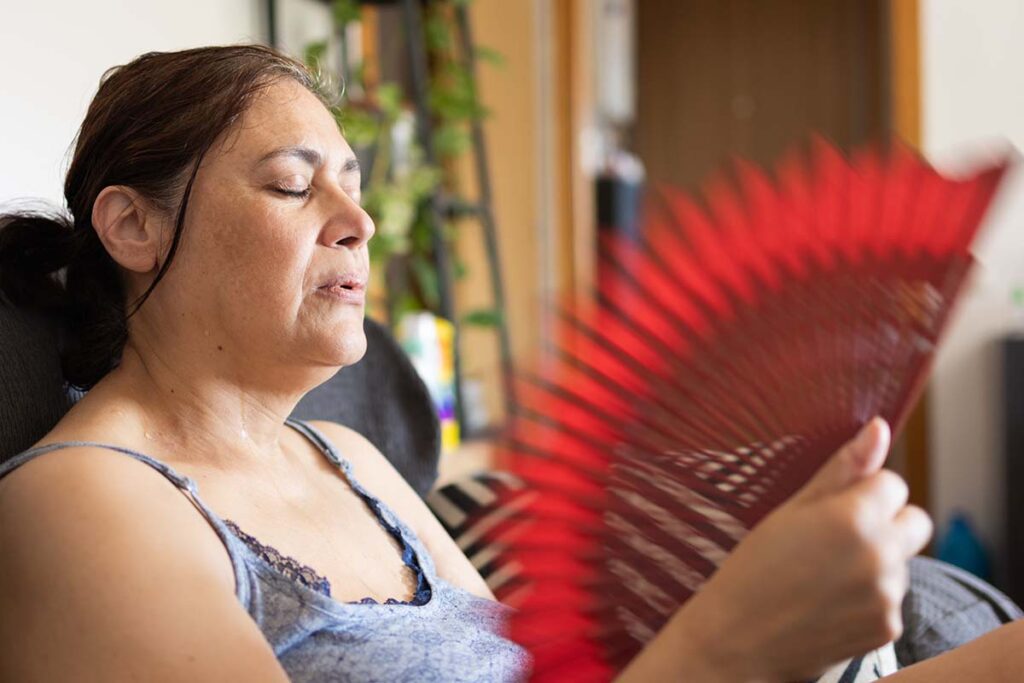We all know extreme heat can endanger our physical health. As average temperatures rise around the globe, so does the risk of heat-related illness. At it’s worst, it can turn into heat stroke, a life-threatening emergency.
It turns out high temps don’t just cause physical harm, according to the American Psychological Association. Excessive heat is also dangerous to our mental health.
How Does Heat Hurt Mental Health?
The APA reports that heat makes many mental health conditions worse. These include anxiety, mood disorders, schizophrenia, childhood behavioral disorders, and more. Heat causes physical discomfort, which can trigger irritability, fatigue, and even anger and aggression.
Looking for Mental Health Resources?
Learn where to find help, what to do when someone you care about is struggling, and more.
While more common in the winter, some people suffer from seasonal depression in the summer. This often causes insomnia, loss of appetite, and weight-loss. Dreading the summer and self-isolating during the hot months can make it worse.
Medications & Heat Don’t Mix
Adding insult to injury, almost all medications for mental health conditions make it harder for the body to handle heat. The exception is benzodiazepines, like Xanax and Klonopin. That means if you take any other kind of medicine for mental health, your risk for heat exhaustion and heat stroke is higher. And we’re talking about a large group of people. About 1 in 6 people in the U.S. take these medications.
How Can Your Protect Your Mental Health?
First and most importantly, if you or someone you know is in crisis, text or call the 988 Lifeline.
If your mental health is suffering, seek treatment. Reach out to your doctor or mental healthcare provider. If you take medicine for a mental health condition, be sure to talk with your provider about your risk for heat-related illness.
You can also protect your mental health with increased coping — whatever that looks like for you. Make time for an activity you enjoy. Take a few minutes in your day to do a guided meditation. Enjoy some time outside — in the shade, of course.
And stay in touch with friends and family. Heat and low mood may make you want to self-isolate. But social connection can boost your mood and keep depression from getting worse.
Check In On People You Care About
How can you help others whose mental health might be suffering? Take time to check in family, friends, and neighbors. People are often shy about sharing that they’re struggling. Reaching out gives them an opening to ask for help if they need it. If you’re worried someone you care about is in danger, read these tips on how to help.

